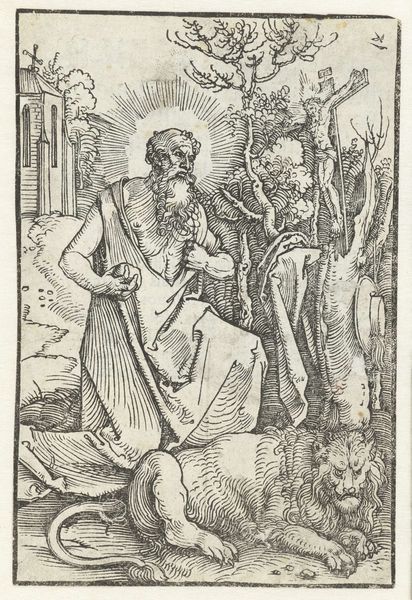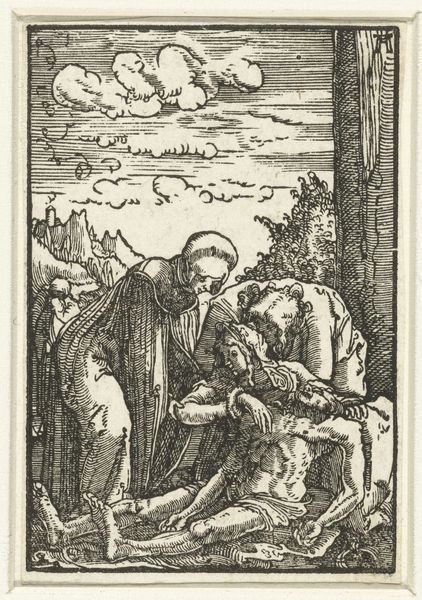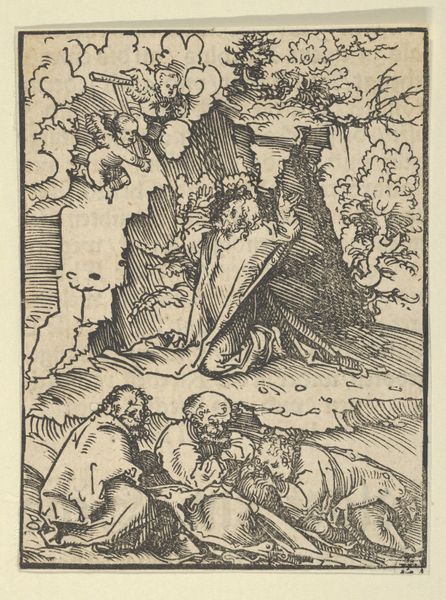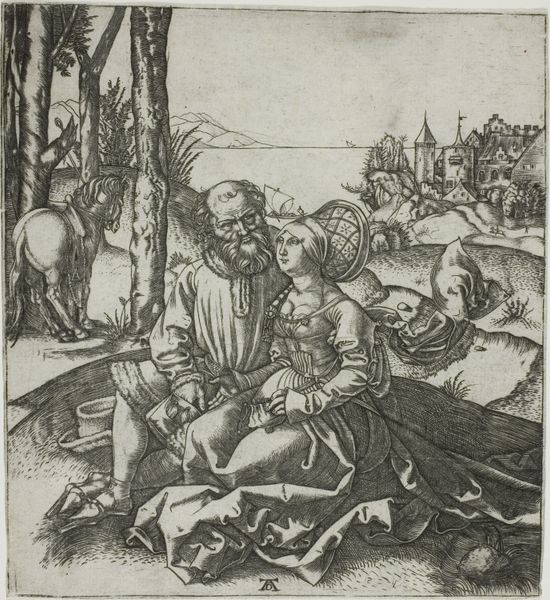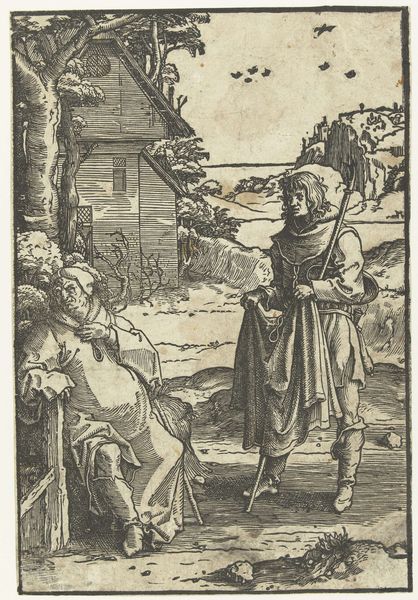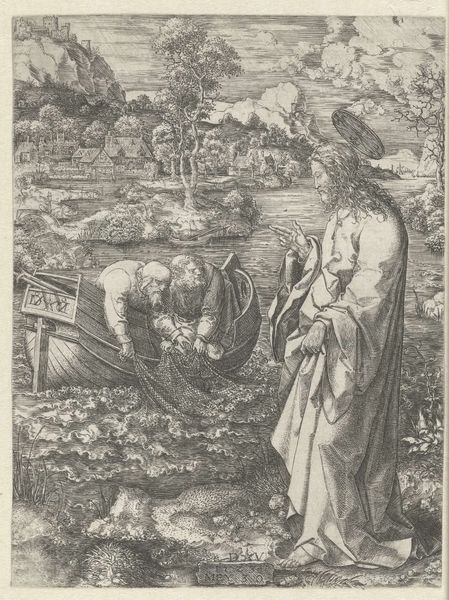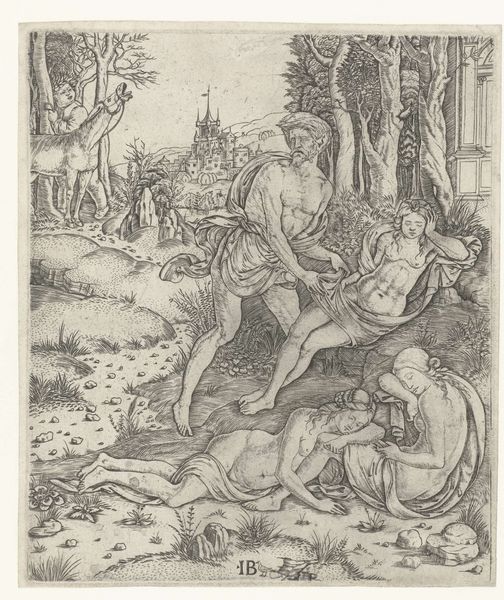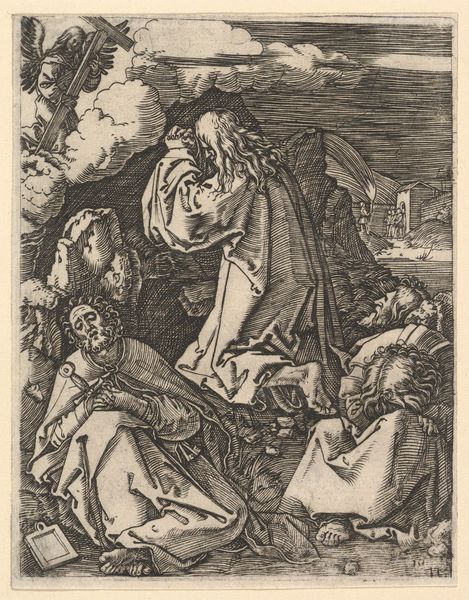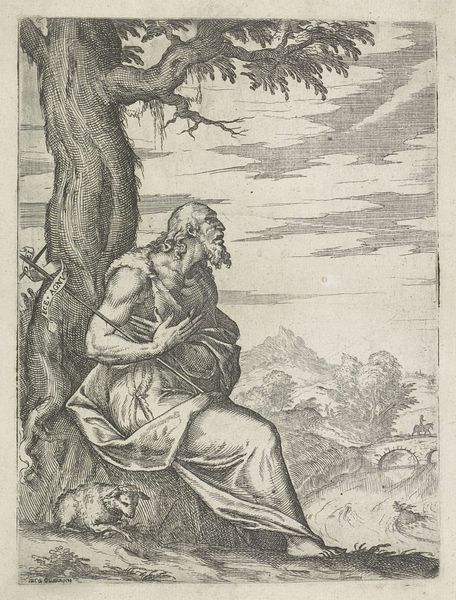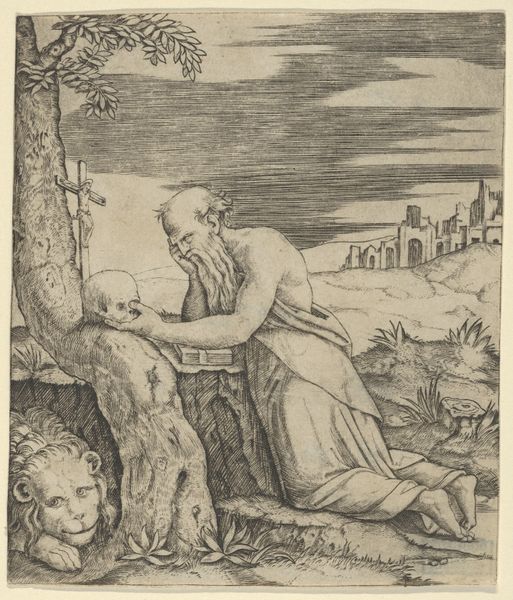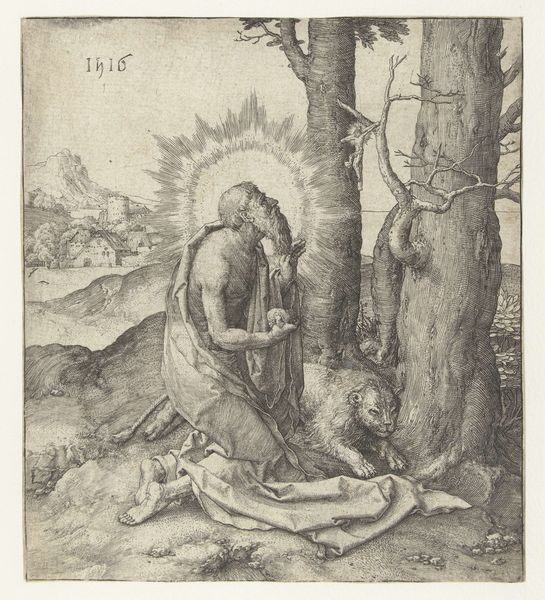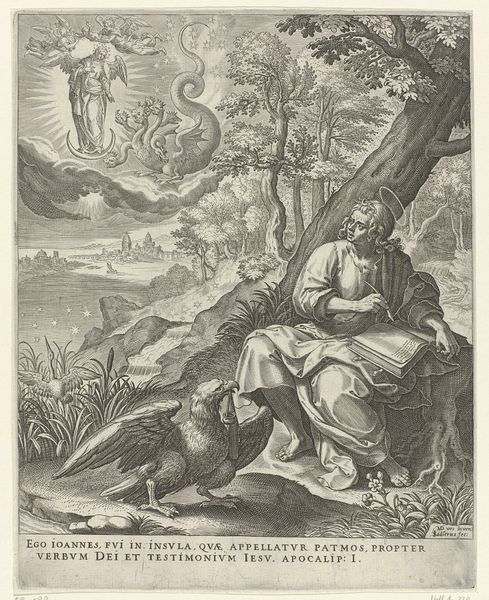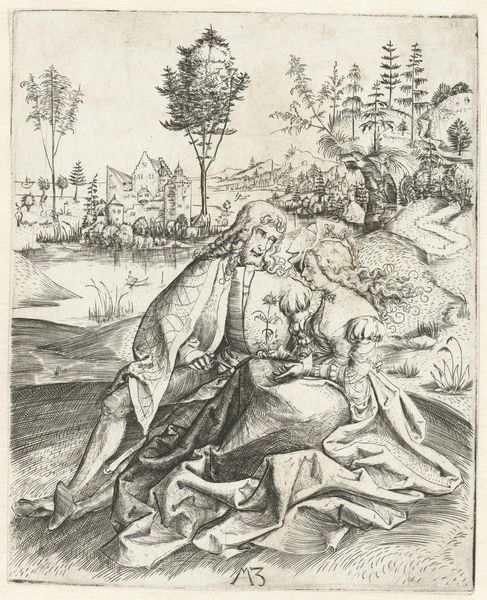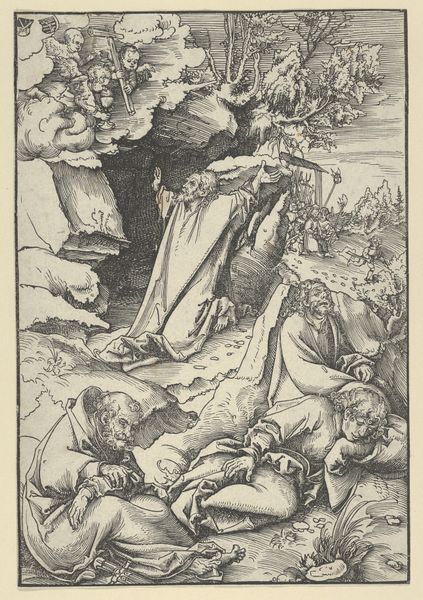
drawing, print, ink, pen, engraving
#
portrait
#
drawing
#
ink drawing
#
allegory
#
pen drawing
# print
#
pen illustration
#
pen sketch
#
pencil sketch
#
landscape
#
mannerism
#
figuration
#
ink
#
momento-mori
#
chiaroscuro
#
pen
#
history-painting
#
italian-renaissance
#
engraving
#
miniature
#
realism
Dimensions: height 133 mm, width 111 mm
Copyright: Rijks Museum: Open Domain
Curator: This drawing, housed here at the Rijksmuseum, presents "Saint Jerome in Penitence in the Desert." Created sometime between 1500 and 1577 by an anonymous artist, it’s rendered in ink. Editor: Immediately striking is the composition – the stark contrast between the meticulously detailed foreground and the more loosely sketched background really emphasizes Jerome's solitude. There's a contemplative melancholy that seeps right out of the picture plane. Curator: The technique here is remarkable. The use of hatching and cross-hatching creates a rich tonal range despite the monochromatic palette. Note how the artist uses line weight to suggest volume and depth, particularly in the rendering of the drapery and the craggy landscape. Editor: And that skull! Placed right in the center, its stark emptiness throws Jerome's devotion into high relief, doesn’t it? I keep wondering, is it a symbol, or did he just stumble across it in the desert one day? "Alas, poor Yorick..." moment, perhaps? Curator: Functionally, the skull operates as a potent memento mori, a common trope in art of this period. Jerome's intense gaze suggests a profound meditation on mortality, amplified by the adjacent lion which also alludes to aspects of his hagiography. Editor: Absolutely. And I think the allegorical function merges with this raw, personal journey that bleeds through; what would it have been like, all alone, grappling with the hugeness of the universe. I can almost smell the desert dust just looking at it. Curator: It’s a potent illustration, technically adept and intellectually stimulating, showcasing the artist’s grasp of anatomy and symbolism. Editor: Ultimately, the magic lies, at least for me, in how this tiny engraving opens this vast interior world; that potent blend of artistry, the religious and just pure feeling. It's less like witnessing repentance, and more about witnessing the questions it elicits.
Comments
No comments
Be the first to comment and join the conversation on the ultimate creative platform.
